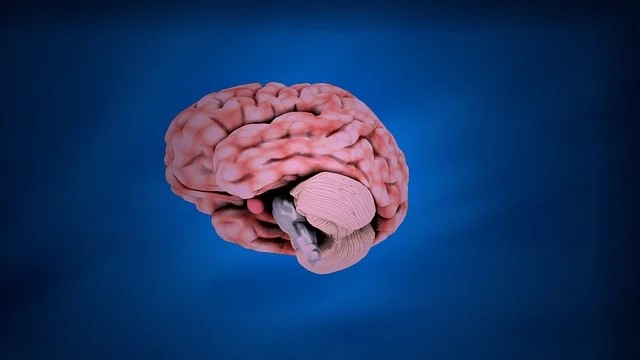Key points Is thyroid dysfunction associated with cognitive decline? Findings In this analysis of individual participant data from 23 cohorts, including 74,565 participants with cognitive function and/or dementia measurements, subclinical thyroid dysfunction was not associated with global cognitive function at baseline (standardized mean difference, -0.02 for subclinical hyperthyroidism and 0.05 for subclinical hypothyroidism) or annual decrease (standardized mean difference, -0.02 for subclinical hyperthyroidism and -0.00 for subclinical hypothyroidism). Meaning These findings do not support the need to screen for subclinical thyroid dysfunction for the prevention of cognitive decline or dementia. |
Thyroid dysfunction is considered a potentially reversible cause of cognitive impairment; Therefore, thyroid function screening is described in the guidelines as an essential component of the workup for the diagnosis of dementia. Thyroid dysfunction is frequently seen in people with suspected dementia.
However, the results of treatment of overt hypothyroidism, hyperthyroidism and subclinical hyperthyroidism on cognitive function are not completely clarified. For subclinical hypothyroidism, 4 of 5 recent randomized clinical trials and a meta-analysis on levothyroxine treatment found no evidence of an improvement in cognitive function.
Analyzes of observational studies have yielded inconsistent results on the associations of subclinical and overt thyroid dysfunction with cognitive impairment and dementia risk.
An analysis of data from individual participants from cohort studies could help clarify the contradictory results of previous studies, as it allows for uniform definitions of thyroid dysfunction and can evaluate the differential association s by age groups, sex and thyroid medication in analyzes of subgroups.
In the present study, we investigated cross-sectional and longitudinal associations of thyroid dysfunction with cognitive function and dementia in an analysis of individual participant data from multiple cohorts.
Importance
In clinical guidelines, overt and subclinical thyroid dysfunction are mentioned as causal and treatable factors of cognitive impairment. However, the scientific literature on these associations shows inconsistent findings.
Aim
To evaluate the cross-sectional and longitudinal associations of baseline thyroid dysfunction with cognitive function and dementia.
Design, environment and participants
This analysis of individual participant data from multiple cohorts assessed 114,267 person-years (median, 1.7-11.3 years) of follow-up for cognitive function and 525,222 person-years (median, 3.8-15.3 years) of follow-up for cognitive function. for dementia between 1989 and 2017.
Analyzes on cognitive function included 21 cohorts with 38,144 participants. The dementia analyzes included eight cohorts with a total of 2,033 cases with dementia and 44,573 controls. Data analysis was carried out from December 2016 to January 2021.
Exhibitions
Thyroid function was classified as overt hyperthyroidism, subclinical hyperthyroidism, euthyroidism, subclinical hypothyroidism, and overt hypothyroidism based on uniform thyrotropin cutoff values and study-specific free thyroxine values.
Main results and measures
The primary outcome was global cognitive function, primarily measured by the Mini-Mental State Examination.
Executive function, memory, and dementia were secondary outcomes. Analyzes were first performed at the study level using multivariable linear regression and multivariable Cox regression, respectively.
Studies were combined with a restricted maximum likelihood meta-analysis. To overcome the use of different scales, the results were transformed into standardized mean differences. For incident dementia, hazard ratios were calculated.
Results
Among 74,565 total participants, 66,567 (89.3%) participants had normal thyroid function, 577 (0.8%) had overt hyperthyroidism, 2557 (3.4%) had subclinical hyperthyroidism, 4167 (5.6%) had hypothyroidism subclinical and 697 (0.9%) had overt hypothyroidism.
The study-specific median age at baseline ranged from 57 to 93 years; 42,847 (57.5%) participants were women.
Thyroid dysfunction was not associated with global cognitive function; The largest differences were observed between overt hypothyroidism and euthyroidism, cross-sectionally (-0.06 standardized mean difference score; 95% CI, -0.20 to 0.08; P = 0.40) and longitudinally (0.11 standardized mean difference of greatest decline per year; 95% CI, –0.01 to 0.23; p = 0.09).
No consistent associations were observed between thyroid dysfunction and executive function, memory, or dementia risk.
In this single-participant data analysis combining single-participant data from 74,565 participants from 23 cohorts, subclinical thyroid dysfunction was not associated with cognitive function, cognitive decline, or dementia risk. Therefore, treatment for undetected subclinical thyroid dysfunction is unlikely to improve cognitive function.
Furthermore, the potential for overtreatment is considerable, which increases the risk of atrial fibrillation, atherosclerosis, and stroke and could therefore increase the risk of cognitive decline.
It remains uncertain whether treatment of overt hypothyroidism or hyperthyroidism is associated with cognitive decline and risk of dementia. Therefore, existing clinical guidelines prescribing screening for subclinical thyroid dysfunction for the prevention of cognitive decline or dementia should be reviewed.
Conclusions and relevance In this analysis of individual participant data from more than 74,000 adults, subclinical hypothyroidism and hyperthyroidism were not associated with cognitive function, cognitive decline, or incident dementia. No rigorous conclusions can be drawn regarding the role of overt thyroid dysfunction in dementia risk. These findings do not support the practice of screening for subclinical thyroid dysfunction in the context of cognitive decline in older adults as recommended in current guidelines. |
















